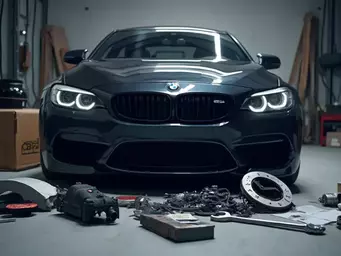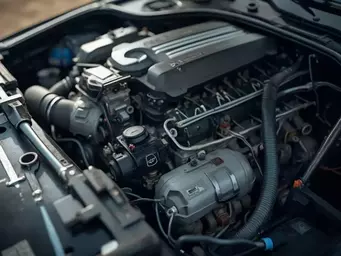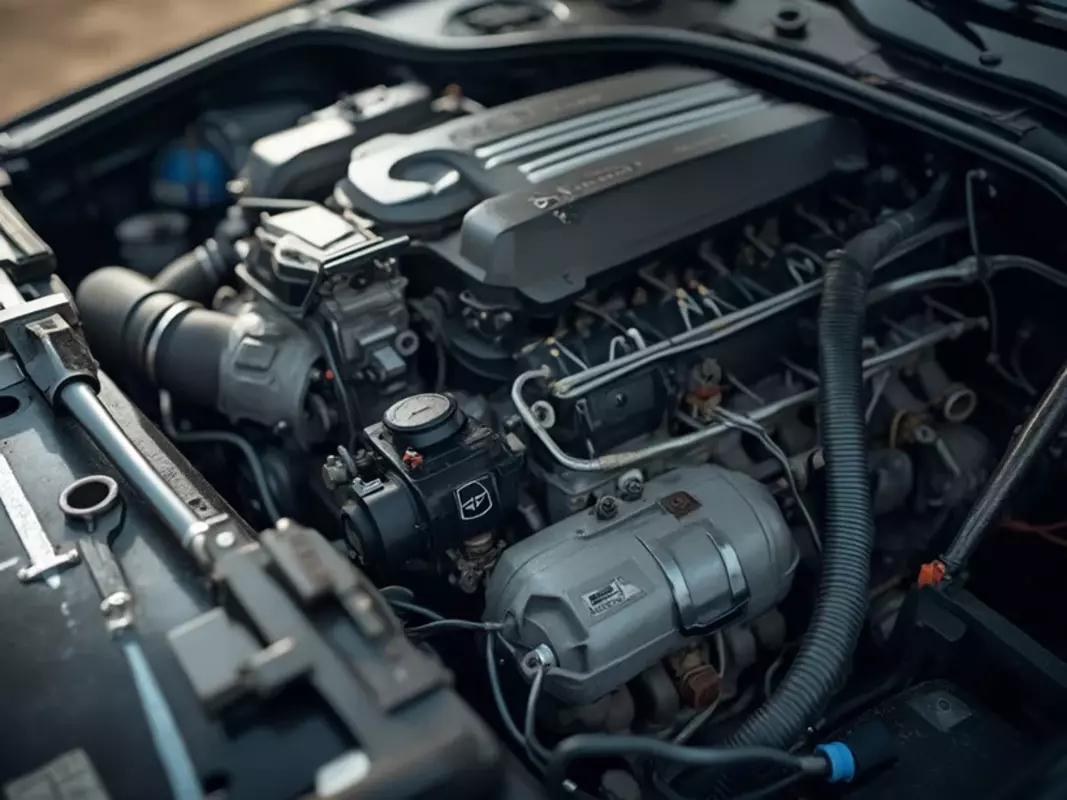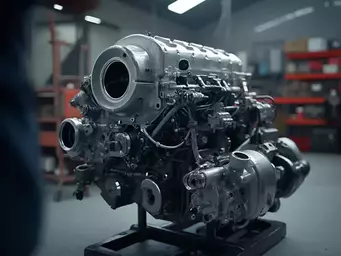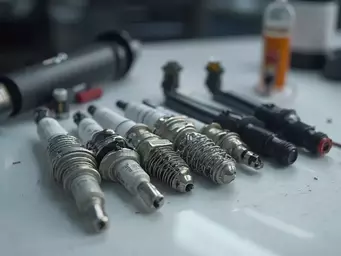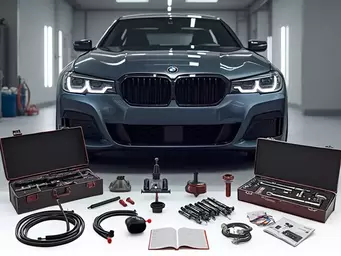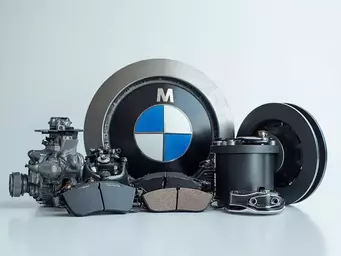OEM vs Aftermarket BMW Parts
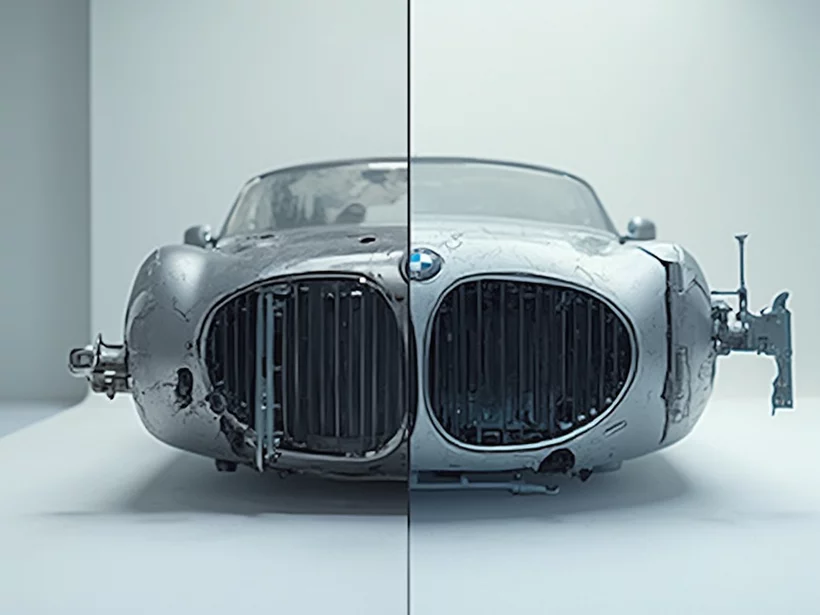
As you navigate the world of BMW maintenance, understanding the nuances between OEM and aftermarket parts can significantly impact your vehicle's performance and lifespan. Are you ready to make informed choices that benefit your beloved BMW?
What You Will Learn
- Genuine OEM parts are made by BMW or authorized suppliers, ensuring perfect compatibility and quality.
- Aftermarket parts vary in quality and price, requiring careful research before purchase.
- OEM parts typically come with a warranty, while aftermarket warranties can be limited.
- Consider your vehicle's age and your budget when deciding between OEM and aftermarket parts.
- Reputable online retailers and local shops are good sources for both OEM and aftermarket options.
- Engaging with BMW enthusiast forums can provide valuable recommendations for aftermarket parts.
OEM vs. Aftermarket BMW Parts: Key Differences & Considerations
This visual highlights the distinctions between Genuine OEM and Aftermarket BMW parts across crucial aspects like manufacturing, quality, cost, and warranty, aiding informed decision-making.
Genuine OEM Parts
Manufacturing: Produced by BMW or authorized suppliers, identical to original components.
Quality & Authenticity: Meets BMW's stringent specifications, perfect fit, high durability, optimal performance.
Cost: Typically more expensive upfront.
Warranty: Usually comes with a manufacturer warranty, ensuring peace of mind.
Aftermarket Parts
Manufacturing: Produced by third-party manufacturers.
Quality & Authenticity: Quality, fit, and durability can vary widely; may require adjustments.
Cost: Generally more affordable, offering budget flexibility.
Warranty: Warranties can be limited or vary significantly by brand/seller.
Understanding the Differences: Genuine OEM vs Aftermarket BMW Parts
When it comes to maintaining your BMW, one of the first decisions you'll face is whether to choose Genuine OEM parts or aftermarket options. Understanding the differences between these two categories can help you make informed decisions that align with your vehicle’s needs and your budget. Let’s dive into what each type of part entails!
Defining Genuine OEM BMW Parts
Genuine OEM parts, or Original Equipment Manufacturer parts, are components made by BMW or its authorized suppliers. They are designed specifically for your vehicle model, ensuring perfect compatibility and performance. One of the most significant advantages of using OEM parts is the assurance of quality and reliability.
What Qualifies as Genuine OEM?
For a part to be classified as Genuine OEM, it must meet specific criteria:
- Produced by BMW or an authorized manufacturer.
- Identical to the original component that came with your vehicle.
- Typically comes with a warranty that covers defects.
Choosing OEM means you’re getting parts that were designed to work seamlessly with your BMW, maintaining its performance and safety standards.
Exploring Aftermarket BMW Parts
On the other side of the spectrum, aftermarket parts are produced by third-party manufacturers. These can range widely in quality, price, and compatibility. While they can be less expensive than OEM options, it’s essential to do your research before making a purchase. The auto parts industry provides a vast array of choices.
Types and Sources of Aftermarket Parts
There are a few types of aftermarket parts you might encounter:
- Performance Parts: Designed to enhance your BMW's power and handling.
- Replacement Parts: Aimed at providing functional replacements at a lower cost.
- Universal Parts: Can fit various makes and models but may require modifications.
When looking for aftermarket parts, consider reputable online retailers, local shops, and forums dedicated to BMW enthusiasts for recommendations. This can help you navigate the sea of options available!
Key Differences Between Genuine Parts and Aftermarket Alternatives
Understanding the differences between Genuine OEM and aftermarket parts is crucial in making an informed choice. While OEM parts guarantee a certain level of quality, aftermarket options can vary significantly. For instance, the National Highway Traffic Safety Administration (NHTSA) provides guidance on vehicle parts and accessories, which can be useful when assessing quality and safety.
Understanding Authenticity and Quality Standards
Authenticity is one of the main differentiators. OEM parts are made to BMW's specifications, while aftermarket parts might not adhere to the same stringent standards. This can lead to variability in:
- Fit: OEM parts will always fit perfectly, while aftermarket parts may require adjustments.
- Durability: OEM parts typically last longer, which can save you money in the long run.
- Performance: OEM parts are designed to maintain your BMW's optimal performance.
In summary, while aftermarket parts can be a cost-effective alternative, they often come with risks regarding quality and compatibility. It's essential to consider what you value more: price or performance. As a passionate BMW owner, I always recommend weighing both options carefully!
Pro Tip
When choosing between Genuine OEM and aftermarket parts, always consider the long-term implications. While aftermarket parts may save you money upfront, investing in OEM parts can enhance your BMW's performance and longevity, ultimately protecting your investment.
Making an Informed Decision: OEM vs Aftermarket BMW Parts
When it comes to maintaining your BMW, understanding the differences between OEM and aftermarket parts is crucial. Each option has its pros and cons, and making an informed choice can save you time and money in the long run. Let's break down the key differences and considerations that can help you determine what’s best for your specific needs!
Summary of Key Differences and Considerations
To simplify your decision-making process, here's a quick summary of the key points to consider:
- OEM Parts: Typically more expensive but offer guaranteed fit and performance.
- Aftermarket Parts: Generally more affordable, but quality and compatibility can vary significantly between brands.
- Warranty Coverage: OEM parts usually come with a warranty, providing peace of mind, while aftermarket warranties can be limited.
- Performance Impact: OEM parts are designed to maintain your vehicle's original performance, whereas aftermarket parts can offer enhancements.
It’s essential to weigh these factors based on your vehicle's age, your budget, and your long-term plans for maintenance. Are you looking for reliability or trying to upgrade performance? Your choice will depend on what you prioritize!
Weighing Pros and Cons for Your Specific Needs
Choosing the right parts means considering your unique situation. Here’s a helpful list to guide your decision:
- Budget Constraints: If you have a tight budget, aftermarket parts may be appealing for their lower cost.
- Vehicle Age: For older models, aftermarket parts might offer better availability and affordability.
- Performance Goals: If you’re looking to enhance performance, high-quality aftermarket options may provide better results.
- Long-Term Ownership: For those who plan to keep their BMW for years, investing in OEM parts can ensure longevity and reliability.
Ultimately, your specific needs should guide your choice between OEM and aftermarket parts. Do you have a particular goal in mind for your BMW? Understanding these nuances makes all the difference!
Frequently Asked Questions (FAQs)
- What are OEM parts?
- OEM (Original Equipment Manufacturer) parts are components made by BMW or its authorized suppliers, designed to be identical to the original parts that came with your vehicle.
- What are aftermarket parts?
- Aftermarket parts are produced by third-party manufacturers and can vary widely in quality, price, and compatibility. They can be for performance enhancement, direct replacement, or universal use.
- Are OEM parts always better than aftermarket parts?
- OEM parts offer guaranteed fit, quality, and performance, often with a manufacturer warranty. Aftermarket parts can be more affordable but may vary in quality and may or may not come with a comprehensive warranty. The "better" choice depends on your priorities, budget, and vehicle's needs.
- Where can I buy genuine OEM BMW parts?
- Genuine OEM parts can be purchased from authorized BMW dealerships or reputable online retailers that specialize in BMW parts.
- What should I consider when buying aftermarket parts?
- When buying aftermarket parts, look for reputable brands, check seller ratings and reviews, and ensure the seller has a reasonable return policy. Quality and compatibility can vary significantly.
- Do OEM parts come with a warranty?
- Yes, genuine OEM parts typically come with a manufacturer's warranty, providing peace of mind against defects.
Where to Purchase: Options for Both Types of Parts
Now that you understand the differences, it's time to explore where to find these parts. Whether you're leaning towards OEM or aftermarket, knowing your purchasing options can help you make the best decision.
Finding Reliable Sources for Genuine OEM Parts
When searching for genuine OEM parts, you have a couple of solid options to consider:
- Authorized Dealerships: These are the best places for guaranteed OEM parts with manufacturer support.
- Online Retailers: Websites like BMW Spare Parts Guide can offer competitive pricing and convenience.
Each option has its own advantages, depending on your preference for in-person service or the ease of online shopping. Have you ever visited a dealership for parts? It can be quite an experience!
Authorized Dealerships vs Online Retailers
Authorized dealerships provide a level of assurance that online retailers sometimes can’t match. However, online retailers often have more flexibility in pricing. It’s worth comparing both to find the best deal for you!
Shopping Smart for Aftermarket Parts
Choosing aftermarket parts requires careful consideration, particularly regarding the seller:
- Reputable Brands: Look for well-reviewed brands that have a history of quality.
- Seller Ratings: Check reviews and ratings from other buyers to gauge reliability.
- Return Policies: Ensure the seller has a reasonable return policy in case the parts don’t meet your expectations.
Being smart about your purchases can help you avoid the pitfalls that some aftermarket sellers present. Have you ever had a less-than-satisfactory experience with parts? Share your stories!
Evaluating Sellers and Understanding Return Policies
Always read the fine print regarding return policies. The best sellers will offer clear terms, making your purchase risk-free.
Parts Availability: Navigating the Market
As you venture into the world of parts purchasing, understanding the market can help you find what you need:
- Online Marketplaces: Sites like eBay or Amazon can be useful, but proceed with caution.
- Local Auto Parts Stores: Stores may have limited selections but often provide immediate support.
- Forums and Communities: Engaging in BMW owner forums can lead to hidden gems and recommendations.
Considering a mix of options can broaden your chances of finding the right parts for your BMW. Have you checked out any local or online forums? Connecting with other BMW enthusiasts can be incredibly helpful!
Understanding Online Marketplaces for Parts Purchases
Online marketplaces offer a treasure trove of options, but ensure you verify seller legitimacy to avoid scams.
Encouraging Reader Engagement and Action
As we've covered a lot of ground regarding parts options, I’d love to hear from you!
Join the Discussion: Share Your Experiences
Let’s talk about your experiences with choosing between OEM and aftermarket parts. What decision did you make, and how did it work out for you? Your insights could help fellow BMW owners!
How Have You Chosen Between OEM and Aftermarket Parts?
Your stories matter! Sharing your journey can foster a supportive community of BMW enthusiasts. What challenges did you face, and what tips would you give?
Call to Action: Exploring Your Options Today
Ready to take the next step in your BMW parts purchase? Don’t hesitate to explore your options!
Navigate Your Next BMW Parts Purchase with Confidence
Whether you're opting for OEM or aftermarket, knowledge is your best tool. Feel empowered to make informed decisions that will keep your BMW running at its best. Happy driving!
Recap of Key Points
Here is a quick recap of the important points discussed in the article:
- Genuine OEM parts are made by BMW or authorized suppliers, ensuring perfect compatibility and performance.
- Aftermarket parts can vary in quality and price, making thorough research essential before purchase.
- OEM parts generally come with warranties, while aftermarket warranties can be limited.
- Consider your budget, vehicle age, and performance goals when choosing between OEM and aftermarket parts.
- Authorized dealerships offer the best assurance for OEM parts, while reputable online retailers can provide competitive pricing.

